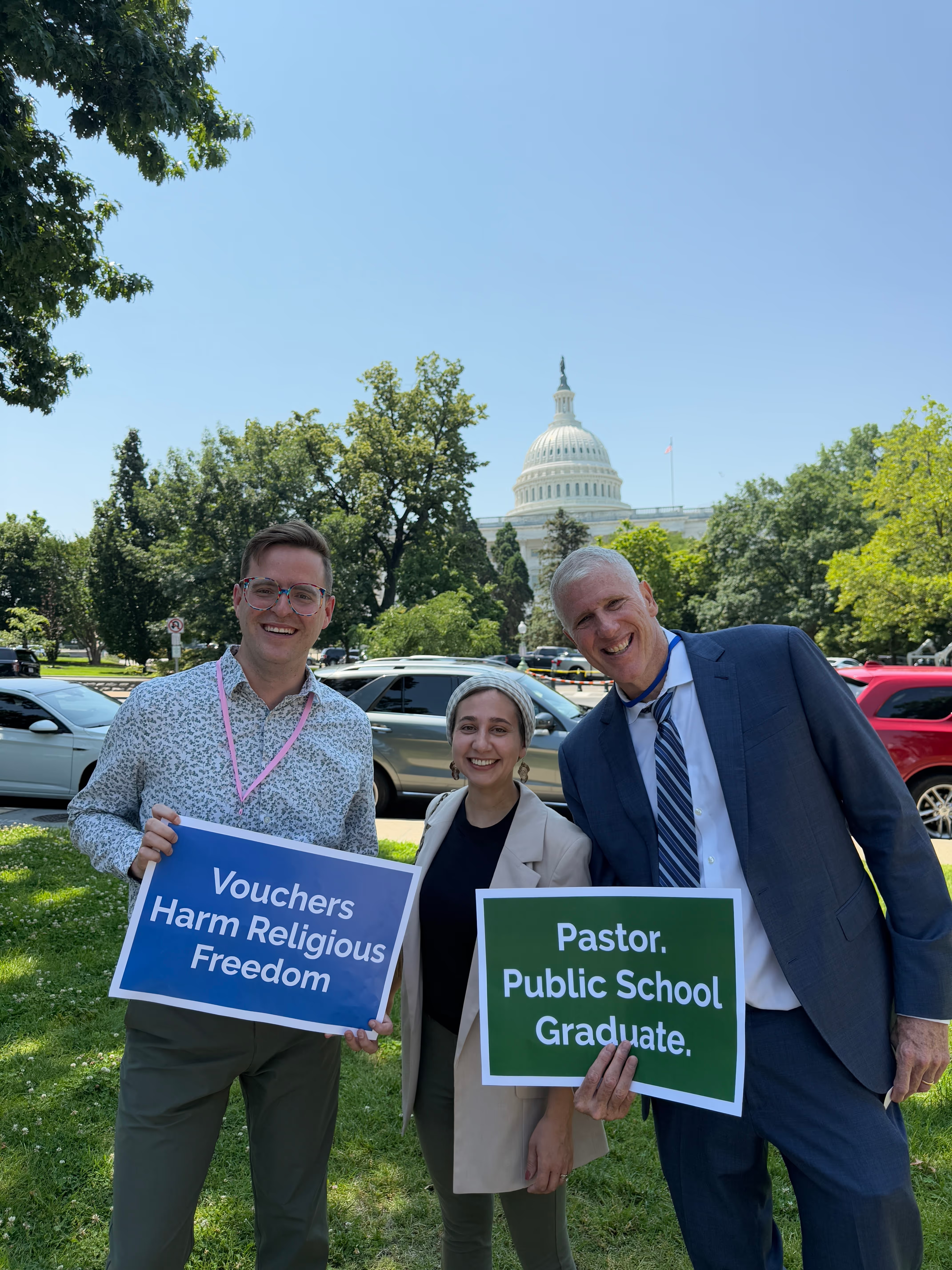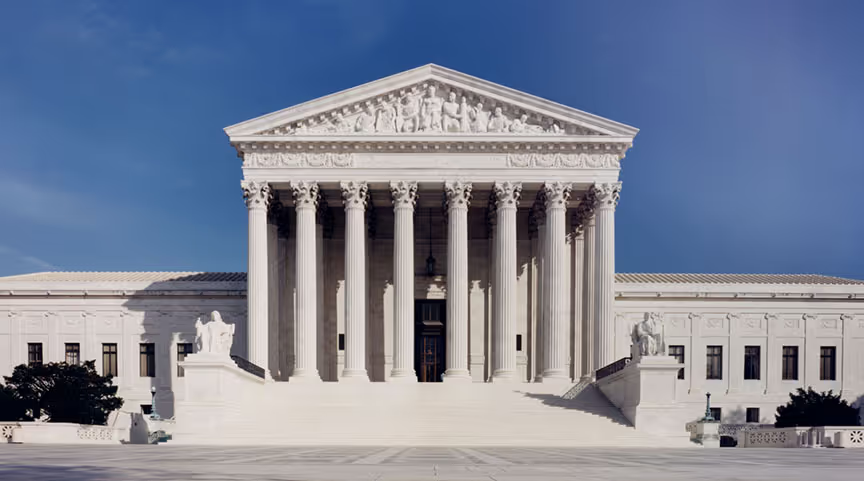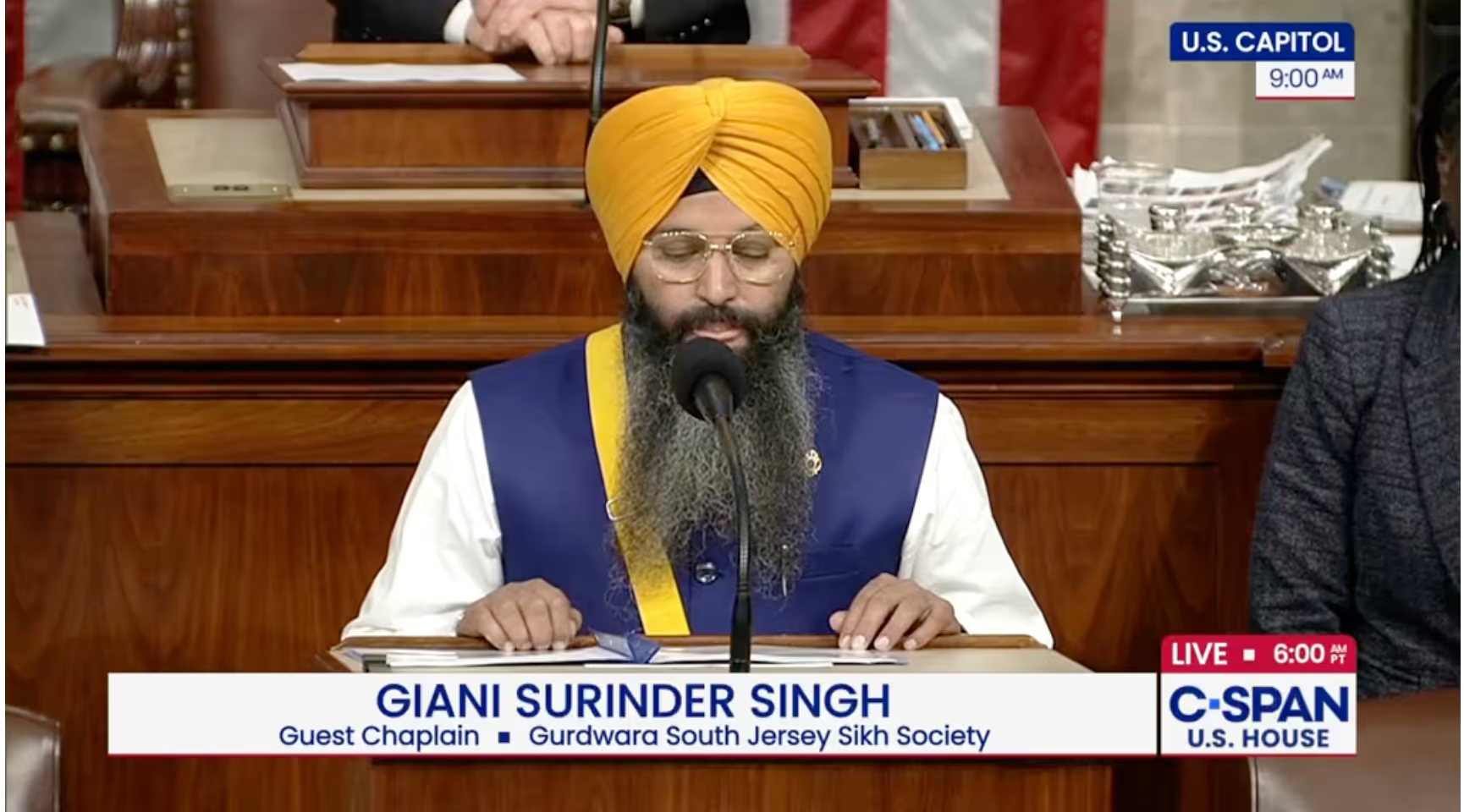News & Updates
Read the latest press releases, blog posts, and State of Belief episodes from our team in Washington, D.C., our network of faith leaders and affiliates across the United States.
Featured Posts
In Trump V. Illinois Amicus Brief, Interfaith Alliance Tells Supreme Court that Right to Protest is Key to Religious Freedom
WASHINGTON — Interfaith Alliance, a leading national advocate for religious freedom, has filed an amicus curiae brief to the Supreme Court in Trump v. Illinois, supporting a ruling by a federal judge that prohibits the Trump administration from deploying the National Guard to Illinois. Democracy Forward is providing pro bono legal representation to Interfaith Alliance in the case.
Department of Education Gets Patriotism Wrong
Interfaith Alliance, together with major religious organizations committed to religious freedom and education, has submitted a formal comment to the U.S. Department of Education opposing the proposed priority and definitions on promoting patriotic education.
Thank you! Your submission has been received!
Oops! Something went wrong while submitting the form.

A Victory for Religious Freedom and Public Education
The Senate Parliamentarian just struck a major blow to efforts to undermine public education and erode the separation of religion and government. The proposed national school voucher program, modeled on the so-called Educational Choice for Children Act, has been removed from the Senate’s budget reconciliation package after being ruled in violation of the Byrd Rule.

SCOTUS Ruling in Mahmoud v. Taylor Enables LGBTQ+ Discrimination, Harms True Religious Freedom
WASHINGTON, DC – Interfaith Alliance, a national leader in defending religious freedom and multi-faith democracy, is deeply disturbed by the Supreme Court’s ruling today in the case of Mahmoud v. Taylor. The decision clears the way for further discrimination against diverse groups and undermines public education. While falsely claiming the mantle of religious freedom, it in fact suppresses diversity and promotes exclusion.

Letter to Speaker Johnson: Make Clear that All People are Welcome in the Halls of Congress
Earlier this month, Giani Surinder Singh, the head granthi of the Gurdwara South Jersey Sikh Society, delivered a prayer on the floor of the House of Representatives. Congresswoman Mary Miller (R-IL) wrote in a since-deleted X post that it was "deeply troubling that a Sikh was allowed to lead prayer."

National Faith Coalition Stands Up for Reproductive and Religious Freedom
Last week, Interfaith Alliance proudly joined the launch of Faithful Majority for Reproductive Freedom, the first national faith-based coalition dedicated to advancing reproductive and religious freedom. This coalition unites diverse faith organizations committed to challenging the harmful falsehood that religion opposes reproductive health care.

Interfaith Alliance Condemns SCOTUS Limiting Medicaid Recipients’ Access to Healthcare
WASHINGTON, DC – Interfaith Alliance, a national leader in defending religious freedom and multi-faith democracy, condemns today’s U.S. Supreme Court ruling in Medina v. Planned Parenthood South Atlantic, which strips Medicaid recipients of the legal right to seek care from the qualified provider of their choice, including Planned Parenthood.

